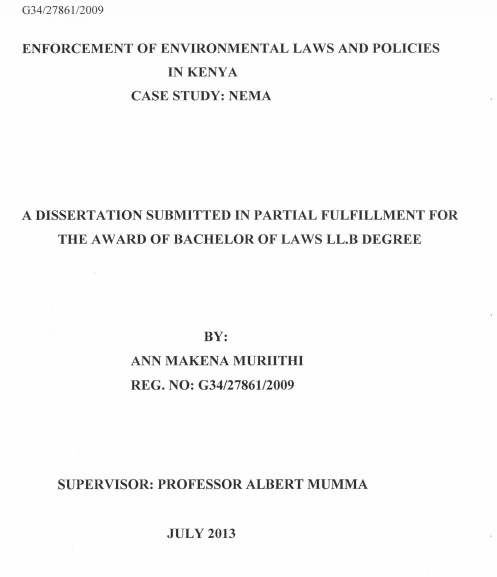Enforcement Of Environmental Laws And Policies In Kenya Case Study: Nema
The environmental sector in Kenya is one of great importance. However, attention in its protection and conservation from a legal point of view came to prominence a decade ago with the enactment of the Environmental and Management Coordination Act of 1999 and the subsequent formation of the National Environmental Management Authority under section 7 of the act.


